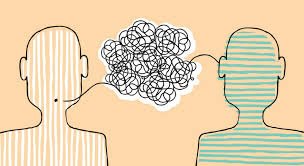Stuttering can be an embarrassing and debilitating problem. It can be especially difficult for children who may opt to withdraw from social situations to avoid being mocked by classmates. It can also be difficult for adults who would prefer to avoid feelings of shame, self-consciousness and awkwardness with peers.
What may surprise you is that some of Hollywood’s biggest names have had to grapple with the affliction in their youth, and they too endured ridicule. These celebrities came to manage their stuttering and eventually learned to thrive in an industry that demands exquisite elocution. Marilyn Monroe adopted her famously breathy voice to overcome her stutter. Bruce Willis and Emily Blunt found they could conquer theirs by pretending to be someone else. Samuel L. Jackson, meanwhile, largely overcame his affliction by focusing on and repeatedly saying a word that need not be printed here. It begins with “mother.”
While pretending to be someone else or taking speech therapy courses may reduce the severity or frequency of stuttering, these methods do not address the causes behind the affliction. James Earl Jones, whose confidence on the stage and screen is legendary, acknowledged this during an interview with NPR: “I don’t say I was ‘cured… I just work with it.”
Ms. Blunt continues to wrestle with the problem as well. “It still comes back and flares if I’m really tired,” she recently told People.
This is because stuttering is not simply a physical issue. It is a medical condition. Furthermore, recent studies have determined that it actually has little to do with physical or emotional causes, as previously thought. Instead, the evidence shows that there are genetic and environmental components of the affliction, as well as ones that pertain to an imbalance of chemicals in the brain.
The good news is that research conducted by organizations like the American Institute for Stuttering, with whom Ms. Blunt has worked, is rapidly improving our understanding of how stuttering problems can be caused by varying levels of neurochemicals. Research at the Institute has also revealed that seemingly different afflictions have similar underlying causes.
For example, emerging evidence suggests that stuttering may be similar to Tourette’s syndrome, which is characterized by involuntary physical or vocal tics tied, in part, to an overabundance of the neurochemical dopamine. By introducing medication that alters the manner in which the brain processes dopamine, patients with Tourette’s and patients with stutters have both seen significantly reduced symptoms. In fact, there has never been a study of dopamine-based medication that has not produced positive results when treating stuttering.
These medications have been proven to be effective, but there is one major downside: Most of them are generics that are not particularly profitable for pharmaceutical companies. They cost pennies per pill to create. Unfortunately, this means that until a new compound is created that can be patented—which will allow the pharmaceutical company who discovered it to charge a far large amount for each pill—there will not be a major marketing push for such medications. On the plus side, though, physicians who are familiar with the connection between dopamine and stuttering can and do prescribe dopamine-based medications to patients who have a stuttering problem.
While there is a proven connection between the dopamine and stuttering, it should be remembered that stuttering is rarely a stand-alone disorder. Those who suffer from it typically have concurrent speech disorders, language disorders, or non-speech-language disorders. If you or a loved one is considering treatment for a stutter, dopamine-based medication can help alleviate symptoms. The best way to ensure that all of a patient’s underlying disorders are addressed is to sit down with an experienced physician and psychiatrist like Samoon Ahmad, MD, whose practice bridges psychopharmacological treatment plans and a holistic approach to the patient’s wellness.
Managing and Thriving with a Stutter


0 Comments on "Managing and Thriving with a Stutter"